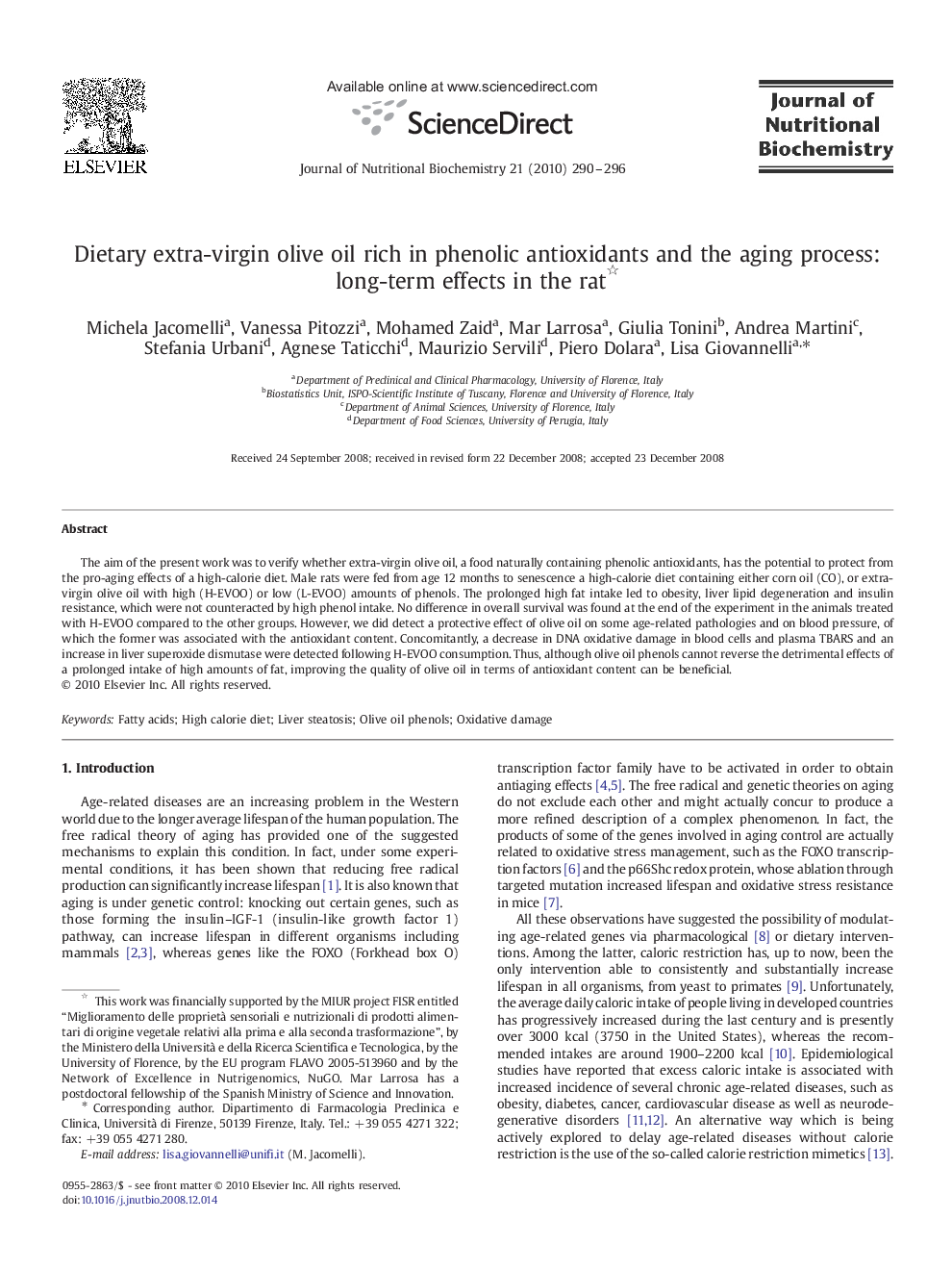| Article ID | Journal | Published Year | Pages | File Type |
|---|---|---|---|---|
| 1990880 | The Journal of Nutritional Biochemistry | 2010 | 7 Pages |
The aim of the present work was to verify whether extra-virgin olive oil, a food naturally containing phenolic antioxidants, has the potential to protect from the pro-aging effects of a high-calorie diet. Male rats were fed from age 12 months to senescence a high-calorie diet containing either corn oil (CO), or extra-virgin olive oil with high (H-EVOO) or low (L-EVOO) amounts of phenols. The prolonged high fat intake led to obesity, liver lipid degeneration and insulin resistance, which were not counteracted by high phenol intake. No difference in overall survival was found at the end of the experiment in the animals treated with H-EVOO compared to the other groups. However, we did detect a protective effect of olive oil on some age-related pathologies and on blood pressure, of which the former was associated with the antioxidant content. Concomitantly, a decrease in DNA oxidative damage in blood cells and plasma TBARS and an increase in liver superoxide dismutase were detected following H-EVOO consumption. Thus, although olive oil phenols cannot reverse the detrimental effects of a prolonged intake of high amounts of fat, improving the quality of olive oil in terms of antioxidant content can be beneficial.
